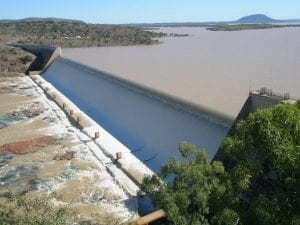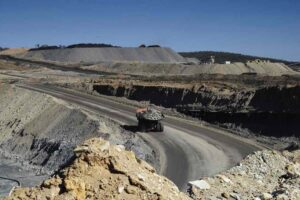As the Turnbull government continues its push for new coal power generation in Australia, renowned US scientist and renewable energy advocate Amory Lovins has described the current coal power development pipeline as “pre-stranded assets” and compared attempts to revive the flagging industry to “defibrillating a corpse.”
“Attempting to revive coal or nuclear is like defibrillating a corpse: it will jump but it won’t revive,” Lovins said in an interview with Bloomberg New Energy Finance. “The economic fundamentals are bleak.”
Lovins – whose well respected think-tank, the Rocky Mountain Institute, merged with the Richard Branson co-founded Carbon War Room in 2014 – also argues it is possible to transition nations to 100 per cent renewable energy, even without the addition of storage.
“A portfolio of variable renewables, properly designed and run, probably requires less storage and backup than utilities have already bought and installed to manage the intermittency of their big thermal units,” Lovins told BNEF.
Interestingly, Lovins is currently advising the Indian government on its strategy for 100 per cent vehicle electrification by 2030, which he says is exploring not just electrification pathways but an integrated transformation of mobility services.
“It encompasses everything from urban planning through to manufacturing of electric vehicles – two-, three-, and four-wheelers – to the smart grid integration of electric vehicle charging and the accompanying regulatory and business model changes,” he said.
“It will also take advantage of India’s mastery of the infotech sector. Integrating these innovations is a high priority for India’s government under Prime Minster Narendra Modi.”
Australia’s Prime Minister, also a self-proclaimed fan of innovation, visited India – and Modi – just last week, but drew criticism from various quarters back home for courting coal magnate, Gautam Adani, during his three-day stay.
“India has a massive program of expanding electrification across the country and Australian coal has a very big role to play in that,” Turnbull said of his meeting with Adani, which is currently deliberating its final investment decision on the $21-billion Carmichael coal mine in Queensland’s Galilee basin – Australia’s largest, if built.
The comments – and meeting – caused dismay in Australian environmental circles, who say the PM is putting Australian coal exports ahead of the health of one of the nations greatest natural assets, the Great Barrier Reef, which is already believed to be in terminal decline due to pollution and global warming.
Others, like Lovins, argue that the mine will wind up a stranded asset, as countries like India shift away from coal power to cheaper, and smarter, technology and resources.










